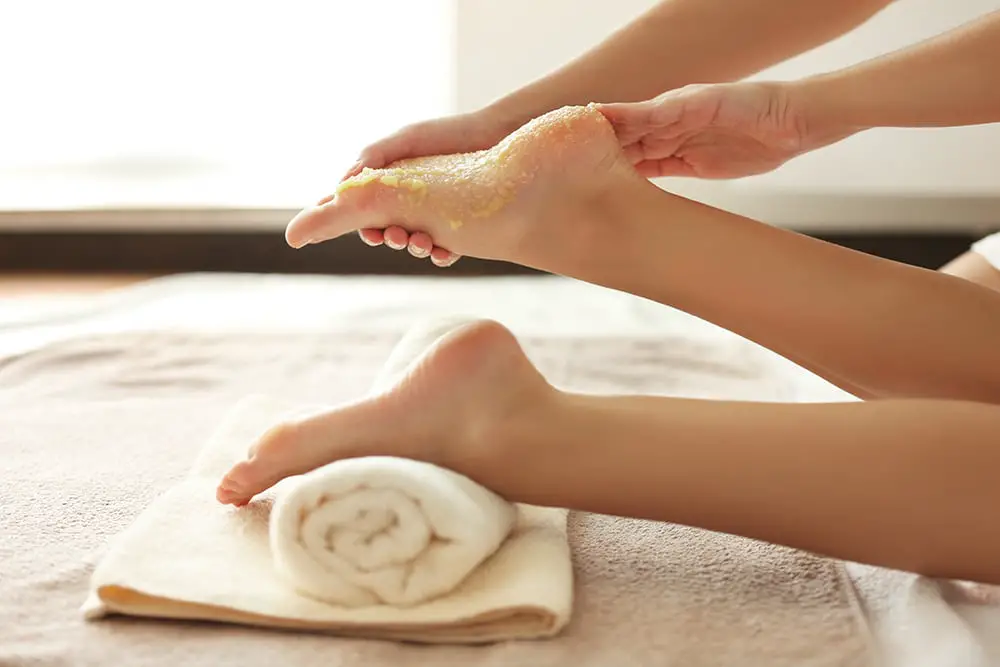BHAs in Exfoliating Body Wash Explained for Beauticians
In the ever-evolving world of skincare, understanding the ingredients that make up our products is crucial, especially for beauticians who are guiding their clients towards achieving healthy skin. Among these ingredients, Beta Hydroxy Acids, or BHAs, have garnered attention for their effectiveness in exfoliating body washes. But what makes them stand out, and why should they be a staple in your skincare recommendations? Let's dive deep into the world of BHAs and uncover their potential.

What are BHAs?
Beta Hydroxy Acids, commonly referred to as BHAs, are oil-soluble acids that penetrate deeper into the skin. Unlike AHAs (Alpha Hydroxy Acids) which are water-soluble, BHAs excel in penetrating oily skin and clogged pores. This makes them particularly effective for individuals dealing with acne-prone or oily skin. Salicylic acid is the most popular BHA used in skincare products, including exfoliating body washes.
How Do BHAs Work?
The magic of BHAs lies in their ability to exfoliate not just the surface of the skin, but also inside the pores. By breaking down the bonds that hold dead skin cells together, they effectively unclog pores, reduce sebum production, and prevent acne. This deep-cleansing property of BHAs makes them an ideal ingredient in exfoliating body washes, especially for clients struggling with body acne.
For more on how exfoliating body washes can lighten dark spots, check out this informative blog post.
Benefits of BHAs in Exfoliating Body Washes
Using an exfoliating body wash enriched with BHAs offers numerous benefits:
1. Deep Pore Cleansing
BHAs penetrate deep into the pores, effectively dissolving oil and debris. This makes them ideal for individuals with oily skin or those prone to body acne.
2. Smoothens Rough Skin
Regular use of BHA-infused body washes can lead to smoother, more even skin texture. They help in shedding dead skin cells and promoting cell turnover. Learn more about exfoliating body wash for rough skin in this detailed article.
3. Reduces Inflammation
Salicylic acid, the most common BHA, is known for its anti-inflammatory properties. It helps soothe irritated skin and reduces redness, making it suitable for sensitive skin types.
Incorporating BHAs into Your Skincare Routine
For beauticians, recommending the right products to clients is key. When it comes to integrating BHAs into a skincare routine, consider the following:
For clients over 40, incorporating BHAs can help in managing adult acne and maintaining youthful skin. For more tips, visit our guide on skincare routines for those over 40.
1. Understand Your Client's Skin Type
While BHAs are generally safe for most skin types, they are particularly beneficial for oily and acne-prone skin. Assess your client's skin type and concerns before recommending BHA products.
2. Introduce Gradually
When introducing BHAs into a skincare routine, it's essential to start slowly. Recommend using BHA exfoliating body washes 2-3 times a week initially, then gradually increase frequency as the skin builds tolerance.
For insights on when to use body scrubs, refer to this expert advice.
Are There Any Side Effects?
While BHAs are generally safe, some individuals may experience mild irritation or dryness, especially when they first start using them. It's important to advise clients to use a moisturizer after exfoliating and to always wear sunscreen, as BHAs can increase sun sensitivity.

FAQs
1. Can BHAs be used daily?
While some people with oily skin might tolerate daily use of BHAs, it's best to start with 2-3 times a week and monitor the skin's response.
2. Are BHAs suitable for sensitive skin?
BHAs are generally less irritating than AHAs, making them a better choice for sensitive skin. However, it's essential to patch test and monitor for any adverse reactions.
3. What's the difference between BHAs and AHAs?
BHAs are oil-soluble and penetrate deeper into the skin, making them ideal for oily and acne-prone skin. AHAs are water-soluble and work on the skin's surface, best for dry skin types.
Learn more about skincare ingredients to avoid to ensure the best results for your skin.
This article contains affiliate links. We may earn a commission at no extra cost to you.

